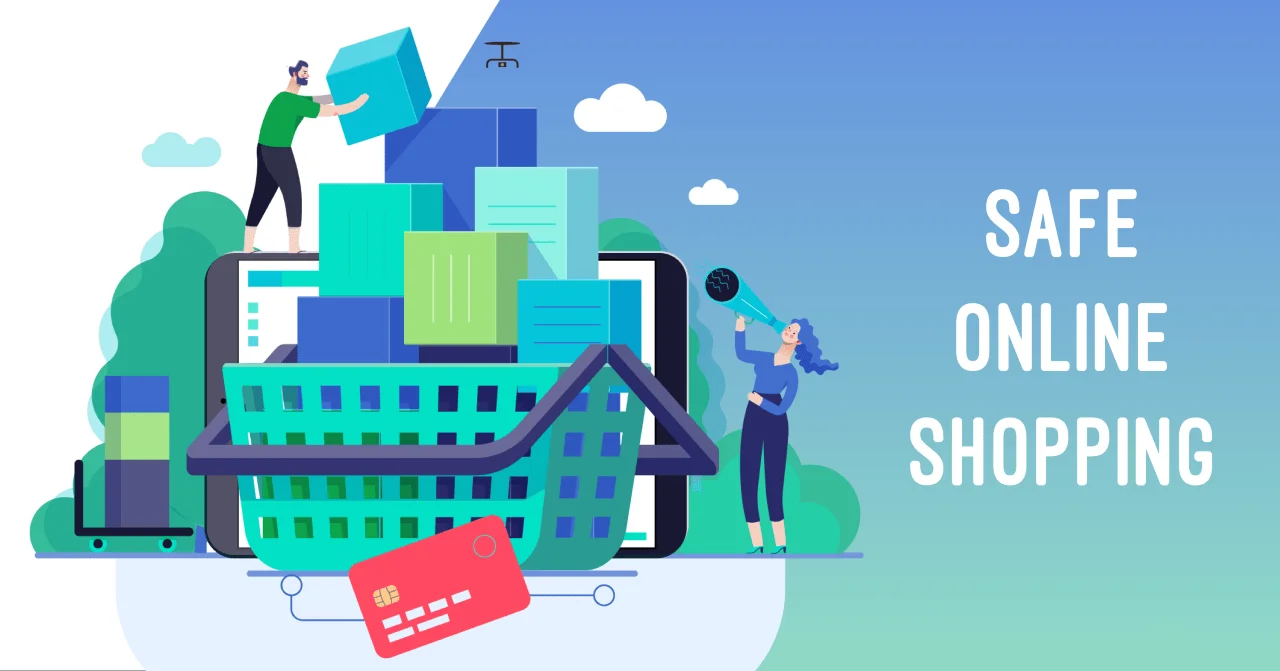10 Tips to Shop Safer Online and Protect Your Privacy
Online shopping can be a lot of fun: you find something you love, add it to your cart, click the “purchase” button, and get a bundle of joy conveyed to your doorstep.
However, these exchanges are not always this smooth. In 2019, the FBI’s Internet Crime Complaint Center received 1,300 online theft complaints in a day on average with an aggregate of 3.5 billion USD in misfortunes to people and organizations.
The FBI as of late has had more complaints about shoppers not getting the merchandise they bought online. A considerable lot of the purchasers fell for special deals promoted via social media. They either received an arbitrary thing like a crate of expendable facemasks that could be returned by paying a high international shipping charge or got nothing at all.
These tricksters can truly drain the delight out of shopping online. For this reason, we have brought a whole list of tips that will allow you to shop online and protect your privacy in the process.
Invest in a reliable online security suite
The best approach to remain safe online is by utilizing a viable online security system. Shopping is no exemption. With the expanding volume of products and information being traded online, security highlights like continuous identity theft protection and anti-phishing programs are a higher priority than ever.
Security suites can be expensive but they are extremely important if you want to protect your online privacy. If buying security software is not within budget, you should at least try a free one. However, if you subscribe to Spectrum deals, you can get your hands on a reliable security suite for free, in addition to the ultra-fast internet speeds.
Shop with legitimate retailers
It is ideal to shop with online retailers you know and trust. You should bookmark your #1 shopping websites so you reach them safely and quickly. Moreover, try not to type the name of the retailer into your address bar.
That is on the grounds that a small grammatical error could land you on a phony site that looks actually like the genuine one. If you make a “buy” on a malicious website and you accidentally hand your credit card details and other personal information to the scammers, it can be a lot problematic.
Be careful of astonishing shopping deals
Did you find a promotion on Instagram or Facebook offering eye-popping low prices? Reports of lost cash from social media frauds have dramatically multiplied in the previous year, as per the Federal Trade Commission (FTC).
Keep in mind, assuming an offer looks unrealistic, it likely is. The FBI tracked down that many websites were promoted via social media.
As such, you should always look at costs before you purchase. Bizarrely low costs could be a warning that you have arrived on a phony site that has been set up to catch your own data or take your money.
Try not to use open Wi-Fi
Public and open wireless connections, although seem like a blessing, might just be hubs of hackers trying to get your information. Do not shop from public Wi-Fi. The person sitting next to you might be spying on your activities online.
Furthermore, shopping online regularly requires giving out data that an identity thief would love to steal including your name, home address, credit card number, and social security details.
Utilize a VPN
On the off chance that you at any point do utilize public Wi-Fi, secure yourself with a VPN (Full form: Virtual Private Network). A VPN makes an encoded path between the server and your PC.
Cybercriminals sneaking close by will not have the option to oversee your online activities or catch your personal data. A VPN is the best way to shop online safely from public Wi-Fi in public spaces, cafes, and air terminals.
Pick solid passwords
A solid password resembles a safe lock that keeps cybercriminals out of your accounts where you store your private data. Here are some fast rules on the most proficient method to pick a decent password:
- Use an intricate arrangement of lower and capitalized letters, symbols, and numbers. You can also consider a long-phrase that you can recall and others are probably not going to figure out.
- Avoid using words out of the dictionary word. Moreover, information that is personal to you and can be guessed should also be avoided, like your child’s birthday or your pet’s name.
- Never reuse passwords across different sites. This is because if someone hacks your one account, it will lead to all other accounts based on the same password.
- Check site legitimacy before you purchase
Search for a lock symbol in the address bar of a website to check that they use SSL (full form: secure sockets layer) encryption. The website address likewise should begin with “HTTPS” instead of just “HTTP.”
Secure sites are arranged to cover the information you share, like passwords or monetary data. Shopping just on secure websites decreases the danger that your private data will be compromised while you shop.
Always pay with a credit card
Utilize a credit card to shop as safely as could be expected. The first reason is that a credit card does not provide the seller direct access to your money. Second, most credit cards flaunt zero-dollar obligation for extortion.
As such, even if the seller is a fraud, you will not run out of money.
Try not to succumb to email tricks
You may get messages or emails offering stunning deals or asserting that there has been an issue with your package delivery. Remove dubious messages from new senders. Also, do not ever open attachments or click on messages since they could contaminate your PC or smartphone with malware and viruses.
Guard your data
Here is an overall principle: No shopping site ought to at any point request your Social Security number. On the off chance that a site demands this sort of exceptionally personal data, leave it immediately. Legitimate dealers ask for minimal information.
Track your stuff
After you make an online buy, watch it to ensure that it is headed in your direction. In the event that the seller does not give shipping data or is unresponsive, contact your credit card help center. They might eliminate the charge from your bill and investigate the matter.
Look out for extortion
Check your bank and financial records for false charges once every week. You can also set up alerts to tell you of any new action on your card. At the point when you get an email or text notice, you can check your account to ensure you know the charges being deducted.
Report fraudsters
If you come across a scammer or a fraud shopping website, file a complaint with the FTC and FBI’s Internet Crime Complaint Center. This will not only help you but also would benefit the potential customers of the fraud website.



![Uapga Info Scam [2022]: Get All Details Here](https://bruitly.com/wp-content/uploads/2021/12/Uapga-Info-Scam-3-768x407.webp)
